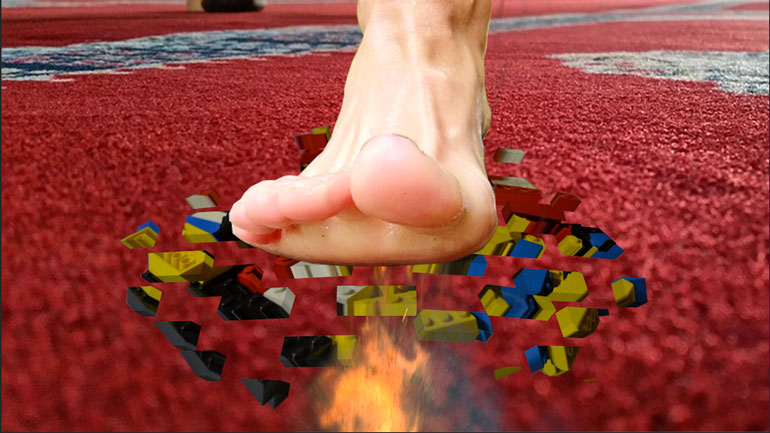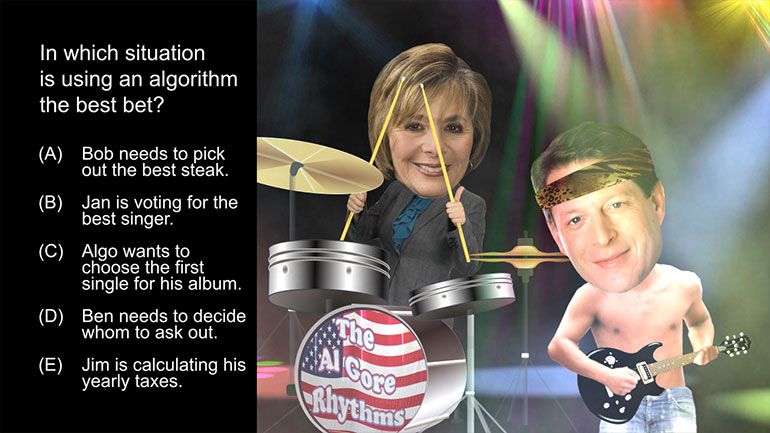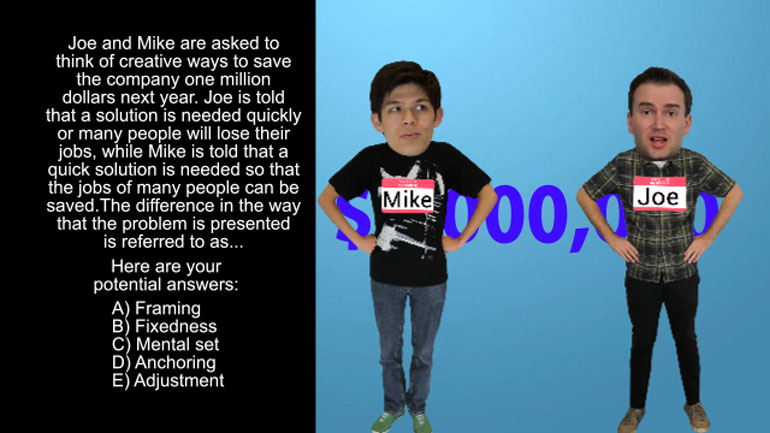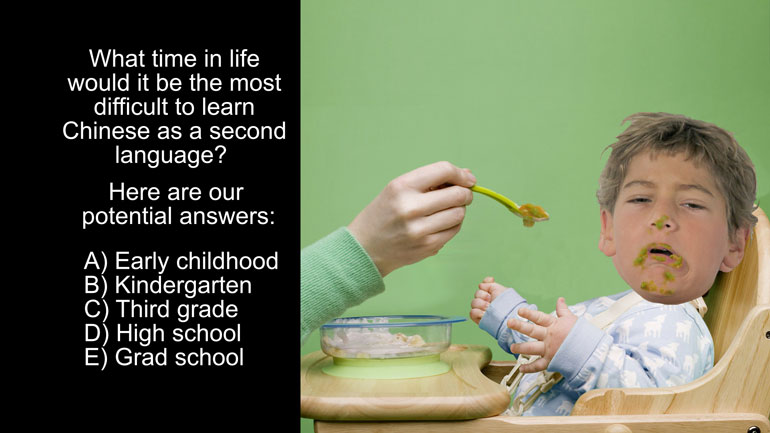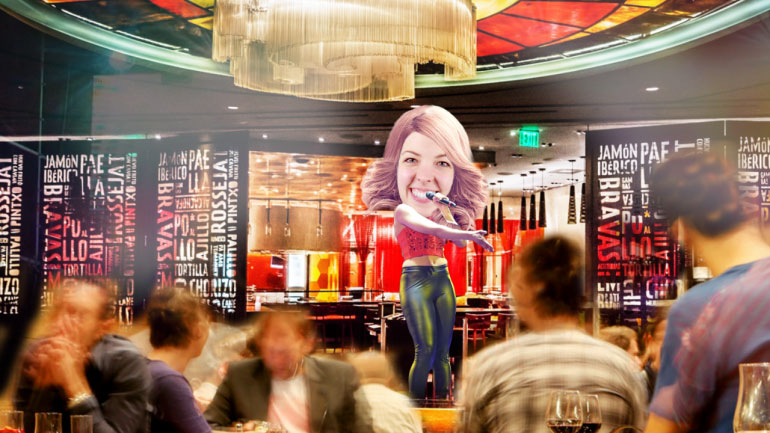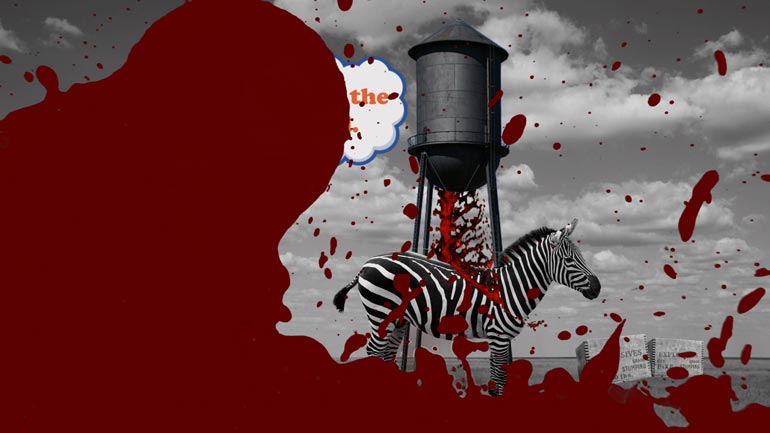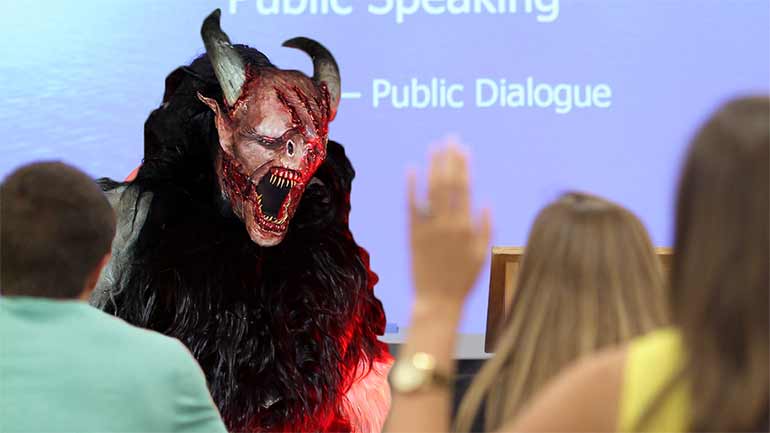ShmoopTube
Where Monty Python meets your 10th grade teacher.
Search Thousands of Shmoop Videos
Cognition Videos 8 videos
AP Psychology 2.5 Cognition. What is this behavior an example of?
AP Psychology 1.2 Cognition. Which of the following strategies would work best for generating new ideas?
AP Psychology 3.4 Cognition 9 Views
Share It!
Description:
AP Psychology 3.4 Cognition. Why did Dave only remember the steps again when he was tired?
Transcript
- 00:04
Here's your shmoop du jour brought to you by sleep waltzing [Man sleep waltzing]
- 00:06
it's like sleepwalking only in three fourth time...
- 00:12
alright here's the question Dave was yawning as he learned the waltz he only
- 00:17
remembered the steps again the next time he was tired why and your potential
- 00:22
answers right here... well we know all
Full Transcript
- 00:26
you waltz fantatics are probably horrified that Dave wasn't completely
- 00:30
awake and alert while learning the sacred art of the waltz but come on it's [Man and woman dancing the waltz]
- 00:35
not the most exciting to dance or anything out there no one ever yawns
- 00:38
during the salsa but still why is it that Dave managed to recall the steps
- 00:43
the next time he was tired? Look at A declarative memories, declarative
- 00:47
memories are memories that can be consciously recalled like facts you know
- 00:51
things you can declare state capitals, specific memories stuff like that a [Boy thinking about the waltz]
- 00:56
little too simple to be the explanation here but super handy when someone asks
- 00:59
you what's capital of Alaska is and you know the answer so you can cross that
- 01:04
out what about B explicit memories - well this is really similar to declarative
- 01:08
memories declarative memory is often referred to as explicit memory but the
- 01:13
difference is that explicit memory is simply the deliberate recollection of [Man throws away memory]
- 01:17
information like remembering a specific history lesson while declarative memory
- 01:22
is being able to put that lesson into words so B doesn't fit either...The
- 01:26
opposite of explicit memories are implicit memories which is E - this is a [Man approaches a bicycle]
- 01:31
type of memory in which previous experiences aid in the performance of a
- 01:35
task but they don't involve any conscious recollection riding a bike's
- 01:40
a great example even if you haven't ridden a bike in years your implicit [Boy riding a bicycle]
- 01:43
memory allows you to hop on and peddle with ease you know nine times out of ten
- 01:47
what bikes are tricky.. anyway that's not what's happening here so we can get rid
- 01:51
of E and D doesn't fit because it's not a real kind of memory it most closely [Person uses a pin to pop a memory]
- 01:56
describes context-dependent memory which is the ability to recall memories when
- 02:01
the context is the same like writing a test in the same classroom you learn the [Girl writing in a test]
- 02:05
curriculum but this isn't our guy here which leaves us with C state-dependent
- 02:11
memory what we're describing is a state like a state of being that is the sort
- 02:16
of state we're in happy, sad, excited, and yes Dave even tired research has shown [Dave sleeping and begins reading a book on how to waltz]
- 02:21
that the state were in when we learn new information is encoded into that
- 02:27
information and so being in a similar state will aid in recollection so C is
- 02:31
the correct answer but only if dave was actually awake if he was sleepwaltzing [Dave removes duvet and in bed with a 1st place trophy]
- 02:36
well he probably won't remember any of this in the morning, sorry Dave
Related Videos
AP Psychology 1.1 Social Psychology. Which of the following best describes social psychology?
AP Psychology 1.1 States of Consciousness. Who conducted research on REM sleep deprivations?
AP Psychology 1.2 Cognition. Which of the following strategies would work best for generating new ideas?
AP Psychology 1.2 Sensation and Perception. The cells in the back of the eye that only see in black and white are called what?
AP Psychology 1.2 Social Psychology. What is the best choice for producing better productivity?


